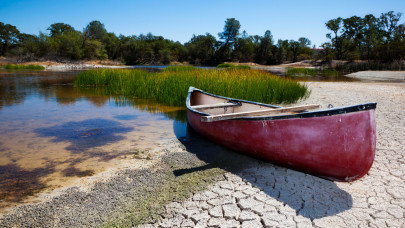Launched in May 2018, the Task Force consists of 11 members appointed in a personal capacity, with expertise and experience in agriculture, agri-business or agroindustry, trade, development policy or migration related issues and first-hand knowledge of the agri-food sector in Africa. Meeting regularly from the launch to early December 2018, the group of experts focused on sustainability, and jobs and income creation in the African agri-food sector, taking into account the continent's rapidly increasing labour force.
The Task Force's central recommendation is to implement an innovative Africa-Europe partnership for the inclusive and sustainable development of African agriculture, its agri-food sector and rural economy. This partnership would operate on three levels: people-to-people, business-to-business, and government to government.
Within this partnership, four priority strategic areas for action were defined:
Under these four priority strategic areas, the Task Force proposes six recommendations to the European Commission for short to medium term action, and to discuss, support and implement with their African partners. These include:
- Providing support to rural governance and an innovative local action programme, based on a territorial approach. This highlights the need to adapt to local conditions by establishing a policy dialogue between the African Union (AU), the EU and African national and local authorities. In addition, this also emphasises the importance of providing public goods such as infrastructure, electricity and internet, which are all necessary for the further development of the African agri-food sector.
- Mainstreaming environmental sustainability and promoting climate action. For example, this recommendation includes supporting African governments to enforce guidelines for sustainable land and natural resources management.
- Starting a knowledge, innovation and networking initiative for the transformation of agriculture and rural areas. This area of recommendation will focus mainly on knowledge sharing through the creation of a knowledge platform. This would include knowledge on, for example, natural resources, agricultural best practices, and stocktaking of available cropland, soil and water resources at either national or regional level. These platforms will lead to the development and management of databases, which will feed into national and local dialogue on the topic.
- Scaling up sustainable value chain development, regional integration and intra-regional trade. The AU, the EU and their member states must scale up support to regional economic communities and value chain actors to encourage the growth of local and regional markets. This aims to increase and strengthen intra-African trade.
- Bringing together European and African expertise for agriculture and rural development. Under the comprehensive and innovative partnership, a broad connection and collective action between African and European societies, business communities and governments should be established. For example, the idea of launching a Europe-Africa exchange programme, which would bring together sector-expertise from both continents, was put forward.
These recommendations, based on an innovative Africa-Europe partnership, can be situated in the wider context of the new Africa-Europe Alliance for Sustainable Investment and Jobs. This new Alliance, announced by President Juncker in September 2018, aims to deepen the EU's economic and trade partnership with Africa through investment and job creation.








